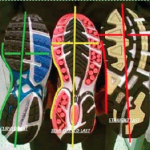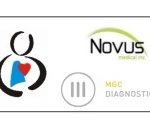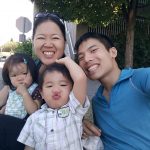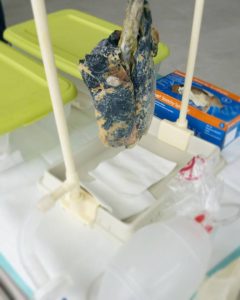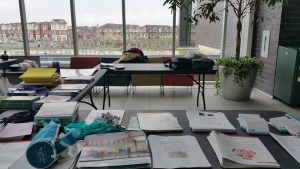Respiratory Therapists Without Borders (RTWB) is a volunteer organization with the mission to “improve respiratory health through educational advancement of local healthcare providers worldwide” (RTWB.ca). This global organization is co-founded by Mr. Eric Cheng. RTWB works with Healthcare Education Partners (HEPs) around the world (RTWB Prezi). He accepted my invitation to talk and to answer few questions.
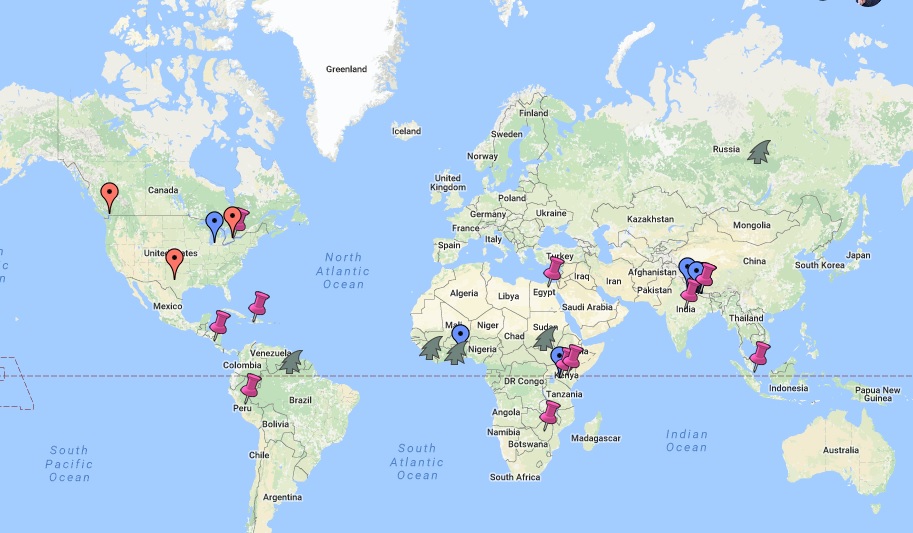
Google Maps: http://goo.gl/LTHHO
Can you tell us a little bit about yourself? How did you hear about the respiratory field and what made you decide to become an RT?
Growing up, I never thought I would do anything in the medical field. Born to a family of engineers, no one could stand the sight of blood – literally. My father and grandfather would faint at the sight of blood. But as a systems design engineering student, I had the privilege to do a co-op term at Princess Margaret Hospital (Ontario Cancer Institute) where I was exposed to animal models to verify imaging hardware. I always had an interest to work directly with people. So naturally after a failed academic term in engineering made the transition to respiratory therapy and kinesiology.
Outside of work, what do you enjoy to do?
I love my family. We can be found roaming around Port Moody in Beautiful British Columbia where we live, work and play. We do everything from stalking garbage trucks to exploring local trails or just hanging out. There is no shortage of world-class mountain biking trails to explore here too.
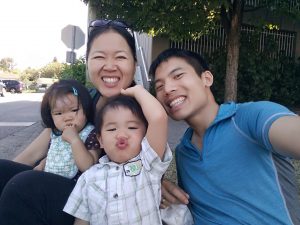
What were some aspects about yourself that you had to improve to become a better RT/leader/ an RTWB-Contributor and Co-founder?
Interesting question, I’ve never really been a fan of the leadership title. I’ve been trained that “patient care in a privilege”. As such, we are to stand in the gap as patient advocates. The lives of my patients and people that we service through RTWB has taught me to be a more passionate/strategic advocate for patients – not just in resource limited settings, but also in our current healthcare system. I’m continuing to learn daily how to navigate various healthcare systems in order to improve the quality of care available.
Where do you see the future of the Respiratory Therapy field?
Great question! I believe that the future of healthcare will be led by those in the developing world. Developed world healthcare systems are often not as dynamic and flexible to the ever changing demands of our world. With technological advances, collecting data for best clinical practises is increasingly becoming easier and more accurate. Along with this will be challenge to stay current. Clinical teams need to be agile and quick to adopt practises/workflows at an ever increasing pace. The lack of structure and unfathomable demands of healthcare systems in the developing world make them highly adaptive ready to embrace emerging technologies to excel leaps and bounds. An example from the telecommunications sector: villagers who have never seen motorized transport or used a landline, are adept users of smartphones now readily available globally. Healthcare providers are now able to get latest research at their fingertips.
What is the story behind the birth of RTWB?
I wanted to volunteer on a medical mission of some sort. Medcines Sans Frontiers (Doctors without borders) at that time listed respiratory therapist as people not to contact for volunteer opportunities. This pained me along with Annette Lievaart (RRT in Edmonton), Clement Hui (SRT in Toronto) and Pauley Ting (Engineering classmate of mine). Together we met on Skype for the first time in 2010. We still have yet to all meet in person; but we have done board meetings in 3 different continents in 4 different time zones. With our mission of ‘improving respiratory health through educational advancement of local healthcare providers worldwide’ solidified, we’ve kept an open invitation to anyone and everyone interested in joining our cause to be empowered. Our team includes everyone from student and seasoned respiratory therapists to accountants/engineers/business professionals to vacationers who want to transport goods for us. We are a completely volunteer run organization with a clear vision and open door to anyone/everyone interested in improving respiratory care worldwide.
What is a typical day for you (as a leader at RTWB)?
As a completely volunteer run organization, everyone puts in whatever they can with spare moments. It is a charity for all respiratory therapists. We believe that every respiratory therapist has something to offer and my job is to facilitate opportunities for respiratory therapists to give back using our expert skills, knowledge and judgement. Getting back to your question, we have an excellent team of talented volunteer professionals making work light and fun.
Do does your organization find remote hospitals to help, or hospitals/clinics approach you/your organization?
Both, we’ve approached places and others have come to us. All healthcare education partners (HEPs) must be reputable healthcare establishments with a documented respiratory education gap. Some of our volunteers have signed on HEPs while on vacation and others have found us on the internet.
What are some of the current projects that RTWB is working on?
A list of deployment opportunities is available at www.rtwb.ca -> Get Involved -> Get Deployed or Volunteer Postings. If there isn’t anything that suits your strengths/passions within the organization, please feel free to write your own job description for something you are passionate about that “improves respiratory health through educational advancement of local healthcare providers worldwide.” It is my firm belief that each respiratory therapist has a unique way to contribute and I invite you to dream with us about how you can use your skills/passions to get involved in OUR charity.
What are your main obstacles (i.e. financial? RT volunteers? Supplies? International relations? Etc.)?
At this point, our biggest need to RT volunteers to be deployed. We have no shortage of sites eager to have an RT on the ground.
Where do you see the future of RTWB?
Wayne Gretzky once said, ‘you miss 100% of the shots you don’t take.’ Our vision is to see the respiratory profession synonymous with ‘giving back’. Within the Canadian healthcare system, RTs follow orders, I believe that RTs need to recognize the value of our collaborative voice at the interprofessional table and start taking more shots – especially in the charitable world. Our future is bright, but we are in desperate need of a generation of sharp shooters that will bring us to the next level of our game. RTs are the underdogs of the healthcare system and we don’t give up easily, we hope to be ever accelerating our global contributions to respiratory health whether it be in research or education.
E.g. of cool projects
- Bubble biphasic – concept pitched by RTWB to team of engineers who have developed a product that attaches onto existing bubble CPAP systems to provide the next level of respiratory support with nothing more than an adaptor on already familiar equipment. Currently undergoing clinical safety trials
- One of our volunteers has 2 young children and can’t travel, so she does skype in-services to a room full of ER docs periodically to help start using a retired home BIPAP in the ER… Results? COPD ICU admissions are reduced by 86%!!! https://drive.google.com/file/d/0B1xpscMQ_Xb1b1d5bW1NR1gyMFk/view
What are the ways RTs can get involved with RTWB?
www.rtwb.ca -> Get Involved
What is the process for an RT who is interested to travel abroad to volunteer at a remote hospital?
www.rtwb.ca -> Get Involved -> Get Deployed
Can you give us an example of how it feels to volunteer at hospital abroad? What are some of the sources of satisfaction/challenges?
www.rtwb.ca -> Get Involved -> Share your story
https://drive.google.com/drive/folders/0B1xpscMQ_Xb1MmpOUWZFcmNYbmc
What are the ways companies/organizations can be involved with or give to RTWB?
www.rtwb.ca -> “DONATE”
Time, money, resources or whatever other creative idea you have. Pitch your ideas to ideas@rtwb.ca. We are eager to hear from you!
Any final words?
With the ease of global travel and communication, the RT practise is a global one. We need to have a global consideration in our practise. This includes learning from what our healthcare colleagues are doing in developing world contexts where clinical skills and education are pushed to their limits and beyond. I encourage everyone to explore how you can be involved. Thanks Farzad for these thought provoking questions. Thank you (the reader) for tuning in so far, if you have, I encourage you to get involved with RTWB where we hope to empower you to take your best shot at improving respiratory health.
Thank you Eric for taking the time to answer my questions, and to share your perspective and experience with us!
To learn more about Eric and RTWB, you visit his LinkedIn profile and RTWB’s website at:
https://www.linkedin.com/in/ericocheng/
www.rtwb.ca
Farzad ‘Raffi’ Refahi
Reference:
-RTWB Overview: https://drive.google.com/file/d/0B1xpscMQ_Xb1ZHBDRmNaeEhHMFk/view
[End]



